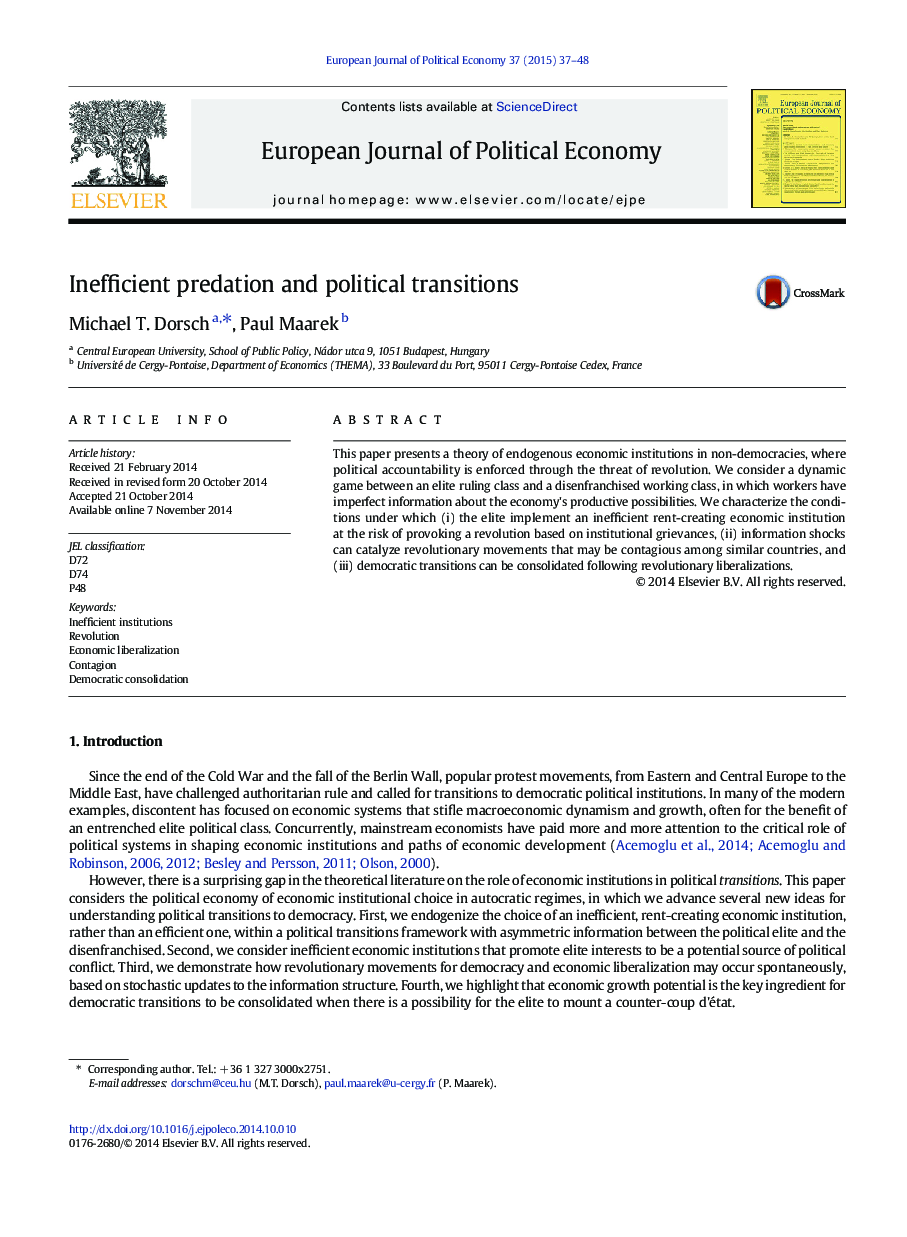| Article ID | Journal | Published Year | Pages | File Type |
|---|---|---|---|---|
| 5067962 | European Journal of Political Economy | 2015 | 12 Pages |
â¢Political economic analysis of inefficient predation by autocratic regimes.â¢Informational shocks can unexpectedly spark democratic revolutionary movements.â¢Revolution over institutional, rather than distributional, grievances.â¢Social learning processes may allow for revolutionary waves.â¢Economic liberalization and growth required for democratic consolidation.
This paper presents a theory of endogenous economic institutions in non-democracies, where political accountability is enforced through the threat of revolution. We consider a dynamic game between an elite ruling class and a disenfranchised working class, in which workers have imperfect information about the economy's productive possibilities. We characterize the conditions under which (i) the elite implement an inefficient rent-creating economic institution at the risk of provoking a revolution based on institutional grievances, (ii) information shocks can catalyze revolutionary movements that may be contagious among similar countries, and (iii) democratic transitions can be consolidated following revolutionary liberalizations.
